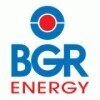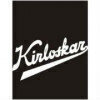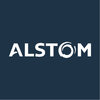Filter interviews by
Clear (1)
THERMAL SYSTEMS Quality Engineer Interview Questions and Answers
THERMAL SYSTEMS Quality Engineer Interview Experiences
1 interview found
I applied via Referral and was interviewed before Aug 2020. There were 4 interview rounds.
Interview Questionnaire
2 Questions
- Q1. What are various types of welding?
- Ans.
Various types of welding include MIG, TIG, Stick, Flux-Cored, and Submerged Arc Welding.
MIG (Metal Inert Gas) welding uses a wire electrode and a shielding gas to join two metal pieces together.
TIG (Tungsten Inert Gas) welding uses a tungsten electrode and a shielding gas to create a precise and clean weld.
Stick welding uses a consumable electrode coated in flux to create a strong bond between two metal pieces.
Flux-Cor...
- Q2. What are the different types of boilers?
- Ans.
Boilers are classified into different types based on their design, fuel type, and usage.
Fire-tube boilers
Water-tube boilers
Electric boilers
Gas boilers
Oil boilers
Solid fuel boilers
Condensing boilers
Combi boilers
Interview Preparation Tips
Top trending discussions






Interview questions from similar companies

(1 Question)
- Q1. Tell about urself

I applied via Naukri.com
(1 Question)
- Q1. Telephonic interview was conducted from Head office
(1 Question)
- Q1. On site interview was conducted.
Interview Preparation Tips

Senior Engineer Interview Questions & Answers
CG Power and Industrial Solutionsposted on 23 Sep 2022
I applied via Walk-in

(2 Questions)
- Q1. GD&T QUESTION? Technical question?
- Q2. GD&T- Geometric dimensioning & Tolerancing
Interview Preparation Tips
Good knowledge of practical.
Confidence will add advantage.

Senior Engineer Interview Questions & Answers
Larsen & Toubro Limitedposted on 10 Sep 2017
I was interviewed before Sep 2016.
Interview Questionnaire
1 Question
- Q1. Ocampo, basic electronics and C
Interview Preparation Tips
Duration: 1 hour
Total Questions: 50
Skills: Embedded Systems, C Programming
College Name: Sahyadri college of engineering

Quality Engineer Interview Questions & Answers
Larsen & Toubro Limitedposted on 5 Jul 2017
I was interviewed in Jul 2017.
Interview Questionnaire
2 Questions
- Q1. Tel me about yourself
- Ans.
Experienced Quality Engineer with a background in manufacturing and process improvement.
Bachelor's degree in Engineering
Certified Six Sigma Black Belt
Proficient in statistical analysis tools like Minitab
Led cross-functional teams to implement quality initiatives
Experience in root cause analysis and corrective action
- Q2. Tel me something about your education
- Ans.
I have a Bachelor's degree in Mechanical Engineering from XYZ University.
Bachelor's degree in Mechanical Engineering
Graduated from XYZ University
Specialized in quality control and assurance
Interview Preparation Tips
Experience: Ans thanks for giving this apporchinuty any how in your hand ur having my CV I think u had gon through
Tips: Thank you
Round: Technical Interview
Experience: Especially I want have intrest to study so that I god less percentage but it's all my knowledge.
Tips: I am idiot but I can do it
Skills: Observations About Project

Senior Engineer Interview Questions & Answers
Larsen & Toubro Limitedposted on 10 Sep 2015
I applied via PLACEMENT
Interview Preparation Tips
Experience: Good detailed interview in terms of technical knowledge
Tips: Should be thorough with the projects you have done during the course
General Tips: be confident of what you put in your resume
Technical knowledge regarding projects undertaken during engineering should be sound
Be confident
Skills: Communication, Thinking capability, knowledge applying capability
College Name: V.E.S Institute Of Technology
Motivation: Opportunity to work in a renowned and core technical company
Funny Moments: We consider the interview panelists to be as tough as our viva externals. Interviewers are mostly on your side(contrary to viva professors :P)

Senior Engineer Interview Questions & Answers
Larsen & Toubro Limitedposted on 12 May 2018
Interview Questionnaire
5 Questions
- Q1. Pertaining to the mentioned roles and responsibilities in your resume
- Q2. Planning and work order creation
- Q3. Piling activities
- Q4. Introduction
- Q5. Cross checking of documents
Interview Preparation Tips
Experience: On the criteria that I scored atleast 60% overall and had no gap between job/s.

I applied via Walk-in and was interviewed in Oct 2020. There were 3 interview rounds.
Interview Questionnaire
1 Question
- Q1. Technical questions.
Interview Preparation Tips

Interview Questionnaire
1 Question
- Q1. 7QC tools, Drawing reading, material composition, basic NDT knowledge, ASTM,ASME knowledge, SPC,MSA, Vendor Audit and evaluation
THERMAL SYSTEMS Interview FAQs
Recently Viewed
Tell us how to improve this page.
THERMAL SYSTEMS Interviews By Designations
- THERMAL SYSTEMS Production Engineer Interview Questions
- THERMAL SYSTEMS Trainee Mechanical Engineer Interview Questions
- THERMAL SYSTEMS Quality Engineer Interview Questions
- THERMAL SYSTEMS Graduate Apprenticeship Trainee Interview Questions
- THERMAL SYSTEMS Manager Materials Interview Questions
- THERMAL SYSTEMS Technical Marketing Engineer Interview Questions
- THERMAL SYSTEMS Engineer Trainee Interview Questions
Interview Questions for Popular Designations
- Quality Inspector Interview Questions
- Senior Quality Engineer Interview Questions
- Quality Controller Interview Questions
- Quality Assurance Interview Questions
- Quality Manager Interview Questions
- Quality Executive Interview Questions
- Quality Assurance Officer Interview Questions
- Executive Quality Assurance Interview Questions
- Show more
Quality Engineer Interview Questions from Similar Companies
Fast track your campus placements
|
Engineer
28
salaries
| ₹0 L/yr - ₹0 L/yr |
|
Senior Engineer
26
salaries
| ₹0 L/yr - ₹0 L/yr |
|
Design Engineer
18
salaries
| ₹0 L/yr - ₹0 L/yr |
|
Production Engineer
18
salaries
| ₹0 L/yr - ₹0 L/yr |
|
Quality Engineer
13
salaries
| ₹0 L/yr - ₹0 L/yr |

Thermax Limited

Kirloskar Brothers

BGR Energy Systems

Alstom Transportation
- Home >
- Interviews >
- THERMAL SYSTEMS Interview Questions >
- THERMAL SYSTEMS Quality Engineer Interview Questions









